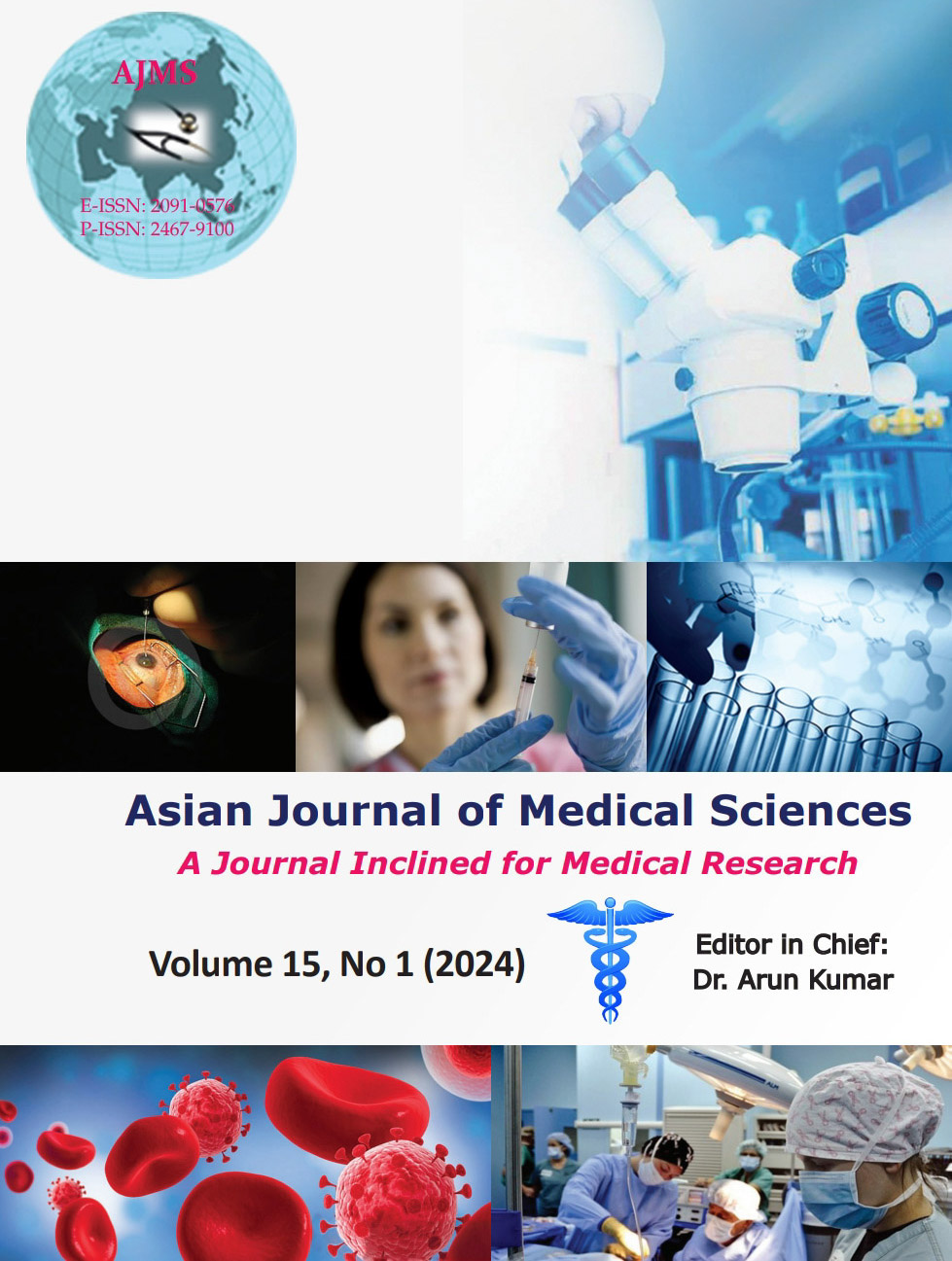Immunohistochemical analysis of epidermal growth factor receptor as a predictive biomarker in lung adenocarcinoma – A cross-sectional study of 33 cases on computed tomography-guided core needle biopsy specimens
Keywords:
Epidermal growth factor receptor; Immunohistochemistry; Lung adenocarcinoma; Tyrosine kinase inhibitorAbstract
Background: Lung cancer is the second most common cause of cancer in all ages and both genders and is the leading cause of cancer death. Two major groups of lung cancers are – small cell lung carcinoma (SCLC) and non-SCLC (NSCLC). Due to discovery of driver mutation such as epidermal growth factor receptor (EGFR) mutation in NSCLC, the paradigm of lung cancer therapy has shifted from cytotoxic platinum based therapy to tyrosine kinase inhibitor (TKI) therapy. In this study, we have analyzed EGFR expression in NSCLC by immunohistochemistry (IHC) and studied the response to TKI therapy in terms of progression free survival (PFS) and overall survival (OS).
Aims and Objectives: In this study, we have retrospectively analyzed the EGFR overexpression in adenocarcinoma of lung in core needle biopsy (CNB) specimen by IHC analysis and correlated with the therapeutic response and survival rate (OS and PFS) in lung carcinoma patients.
Materials and Methods: We have analyzed retrospectively EGFR expression in lung adenocarcinoma cases (computed tomography-guided CNB specimen) by IHC. In our study, we have used monoclonal primary antibodies against two most common EGFR mutations, that is, L858R point mutation and E 746–A 750 deletion.
Results: Out of 33 cases, EGFR expression was seen in 28 cases. For EGFR expression assessment by IHC, both cytoplasmic and/or membranous staining taken into consideration. EGFR positivity was interpreted only when >10% tumor cells having 2+ or more intensely staining pattern. The response to TKI therapy in terms of PFS and OS was also studied.
Conclusion: IHC analysis of EGFR mutation using specific antibodies has extremely high specificity with good sensitivity. Use of targeted therapy in the form of TKI in EGFR positive lung adenocarcinoma has high response rate and long duration of survival (PFS and OS) with acceptable toxicity profile in contrast to the conventional therapy.
Downloads
Downloads
Published
How to Cite
Issue
Section
License
Copyright (c) 2023 Asian Journal of Medical Sciences

This work is licensed under a Creative Commons Attribution-NonCommercial 4.0 International License.
Authors who publish with this journal agree to the following terms:
- The journal holds copyright and publishes the work under a Creative Commons CC-BY-NC license that permits use, distribution and reprduction in any medium, provided the original work is properly cited and is not used for commercial purposes. The journal should be recognised as the original publisher of this work.
- Authors are able to enter into separate, additional contractual arrangements for the non-exclusive distribution of the journal's published version of the work (e.g., post it to an institutional repository or publish it in a book), with an acknowledgement of its initial publication in this journal.
- Authors are permitted and encouraged to post their work online (e.g., in institutional repositories or on their website) prior to and during the submission process, as it can lead to productive exchanges, as well as earlier and greater citation of published work (See The Effect of Open Access).




